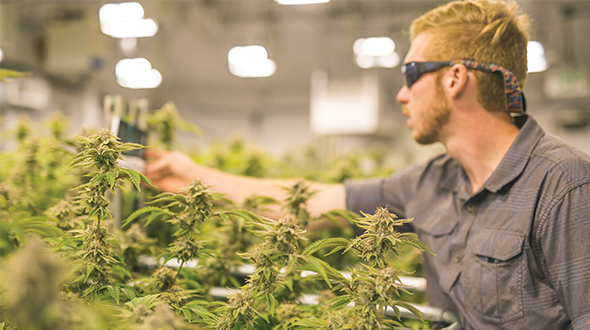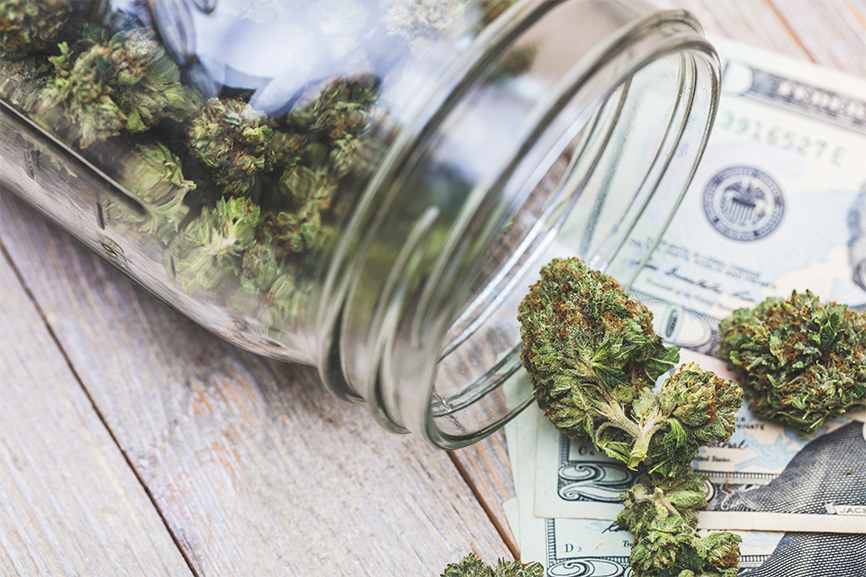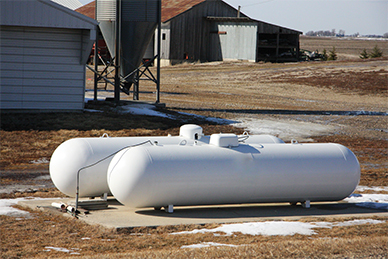Marijuana provides retailers with a unique gallon-growth opportunity
Marijuana is now legal in some form in over half of the United States, bringing unique challenges and opportunities to the propane industry. In the June issue of LP Gas magazine, we explored the safety, legal and employee-hiring challenges the marijuana legalization trend in the U.S. may bring to propane retailers. Despite these challenges, some propane retailers are discovering a gallon-growth opportunity in the nascent legalized marijuana market. Here is the second part of our two-part series.

The versatility and portability of propane makes it a good match for the marijuana industry. Photo: iStock.com/FatCamera
Propane’s agricultural customers have long recognized the fuel’s portable, versatile and low-cost benefits to their operations. Now, their energy needs are drawing comparisons to those of another customer segment growing across the country: the marijuana market.
Despite the market’s relative newness – marijuana was first legalized medically in 1996 (California) and recreationally in 2012 (Colorado and Washington) – propane can play a similar role to the traditional agricultural market by meeting customers’ energy needs.
Marijuana growers, like their agricultural colleagues, operate in rural parts of the country where energy infrastructure may not be strong enough to support their needs, such as heating and cooling, carbon dioxide generation and lighting.
Phil Comstock, vice president of safety and operations for Delta Liquid Energy in Paso Robles, California, says there is little difference between serving marijuana growers and agricultural customers.
“In Nevada, we have a couple of customers that are using propane,” Comstock says. “Generally, they are on the outskirts of town where utilities are limited.”
Comstock says these customers are using propane for air conditioning and heating and for a capstone unit that generates electricity. One customer in particular has a large grow house, which is a large warehouse used for growing marijuana, requiring electricity for grow lights.
“They are basically off the grid, out where utilities are not able to support the load they need,” Comstock explains. “They are supplementing their electricity with a capstone unit using propane.”

Billing can be a challenge some propane retailers face when it comes to working marijuana industry customers. Photo: iStock.com/LPETTET
Facing challenges
The services propane retailers provide to marijuana growers are nothing out of the ordinary, but retailers face some unique challenges in this market.
“I would say the one difference is this tends to be an all-cash business,” Comstock says. “We’ve had to figure out solutions as far as billing and things like that. That was new. That’s not your normal farm. We worked it out, but it was something that was a hurdle that needed to be overcome.”
Nathan Charette, CEO of Silver Valley Propane in Apple Valley, California, ran into a similar challenge with cash billing, but he points out a different challenge.
“Sometimes you have to poke around people’s properties when you set a tank,” Charette says. “These [marijuana growers] are a little leery of that. Getting these guys to get comfortable with you is probably one of the hardest parts. These guys are pretty protective over their area.”
Outside of the heating, cooling and other energy needs, marijuana growers are using commercial grade propane in their laboratories for production purposes, which poses another challenge for retailers.
“This was a bit of a challenge,” Comstock says. “[Commercial grade propane] is not something we would normally stock, so we have to find a source for them now. I have been in the industry for a long time and I have never had anyone ask me for commercial grade or medical grade propane.”
Growers utilize a mixture of butane and propane as a solvent used in an extraction process, helping the producers extract what they need out of the cannabis plant. Additionally, propane can be used in extraction methods for specialty, high-sugar-consistency products and to bring about high terpene content – the aromatic oils found in cannabis and other plants.
Kush Bottles Inc., a company that provides marijuana packaging, supplies, and gas and solvents, uses propane in its hydrocarbon mixture. Propane is not the main ingredient in this mixture, but it plays an important role in the solvent.
“Propane is not really the major gas or hydrocarbon used for extraction,” says Jay Jabat, a business development representative for Kush Bottles. “The main hydrocarbon used is actually butane.”
Because propane has a higher pressure than butane, it is used in the mixture to aid in the extraction process.
Headquartered in Santa Ana, California, Kush Bottles has locations in Washington and in Denver. The company has a bulk tank and receives its propane from Gas Innovations – a company headquartered in La Porte, Texas, which specializes in polymer-grade propylene, propane, high-purity hydrocarbons and refrigerant hydrocarbons.

Nathan Charette of Silver Valley Propane says he has faced challenges with marijuana growers not knowing about propane businesses – how retailers can drive to the rural locations to set a tank and supply fuel. Photo: iStock.com/ DarcyMaulsby
Growing the potential
Charette and Silver Valley Propane started serving marijuana growers in 2017 and now have two customers. He estimates the customers burn no more than 1,000 gallons of propane a year, but he still likes the market’s potential.
“As long as everything stays the way it is regulations wise and nothing else happens with the federal government coming down on marijuana laws, I do expect us to see a lot more [business],” says Charette.
Comstock also sees potential, but recognizes the market is in its early stages.
“At this point, [the marijuana industry] is just starting up. It is great potential,” Comstock says.
“There is potential for those growers who want to be in remote areas. The Nevada market is one of those,” he adds. “As far as permitting on the grow house, they tend to put them way out of town. So, if other states are similar to that, then yes, this will be a growing market for our industry.”
To capitalize on this potential, Charette suggests retailers educate growers on the versatility of propane and a propane company operation.
“I would tell people to make sure the growers in the area know [propane retailers] are around and [retailers] can service them,” Charette says. “A lot of times these guys have no idea. The [customer] I just recently got has some buddies and they didn’t know a propane company would come all the way out to them and bring a propane tank. People don’t want these buildings close to other buildings. They want them in their own area, so that limits them to remote areas in most cases where there are no utilities set up, so propane works out great for them.”
The Cannabis Trade
The National Cannabis Industry Association (NCIA) mission is to promote the growth of a responsible and legitimate cannabis industry and work for a favorable social, economic and legal environment for that industry in the United States and is the only industry-led organization engaging in legislative efforts to expand and further legitimize the legal cannabis market in the U.S. NCIA works toward ensuring the market’s growing business sector is represented in a professional and coordinated way on the national stage. Some core values of the association include publicly advocating for the unique needs of the merging cannabis industry and defending against threats to the legal market for cannabis and cannabis-related products; advocate for responsible business practices and corporate accountability within the industry; and host regular educational and networking events to strengthen the cannabis business community and elevate sophistication throughout the industry. To learn more about NCIA, visit thecannabisindustry.org.
















